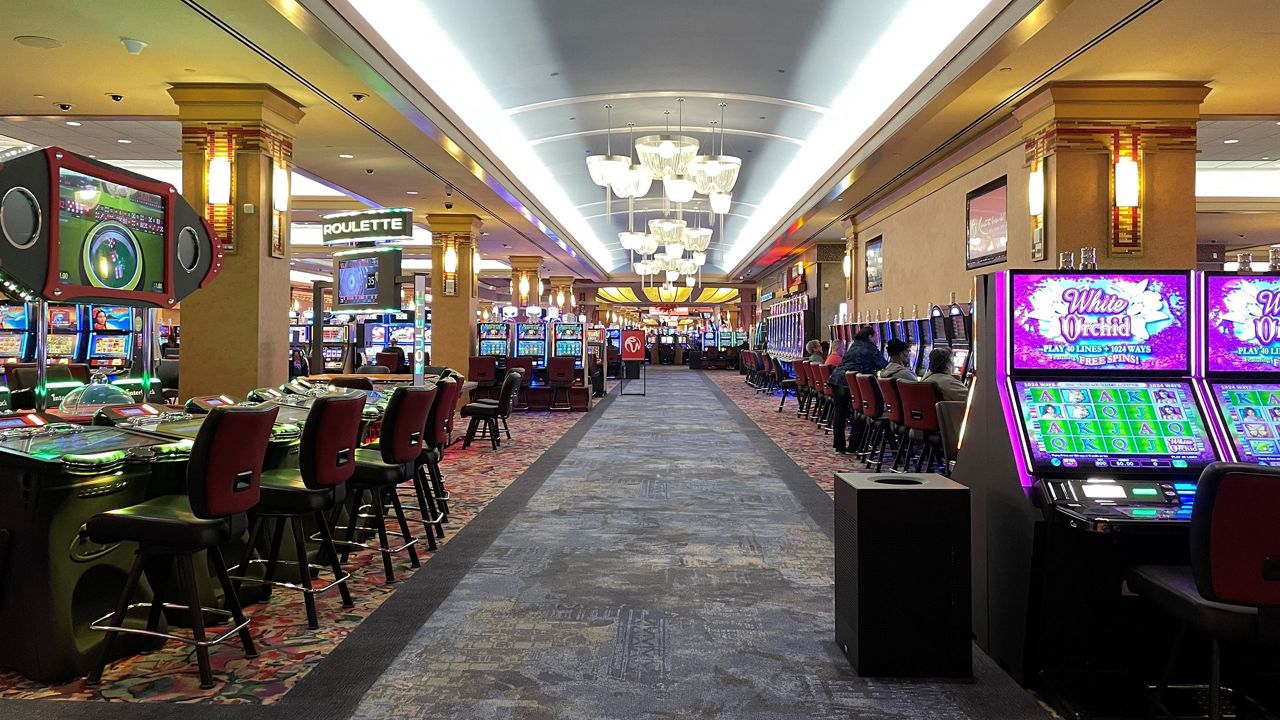Such attraction of casino-related activities has mesmerized huge numbers of people around the globe for centuries. From the turning roulette device to the noise of shuffling cards, the rush of fortune and skill merges to create an exciting environment that pulls players in. 789p These games are not just pastimes; they have grown into an valuable part of the cultural industry, transforming into a universal phenomenon that encompasses luxurious getaways, vibrant online platforms, and everything in between.
As the desire for unique and engaging experiences persists to expand, the tales behind the triumph of casino games reveal a intriguing landscape. Businesspeople and designers are always pushing the limits of creativity and fresh ideas, leading to the development of new entertainments and immersive tech. Exploring these narratives gives us understanding into the requirements to create a gaming business and the dedication that motivates those operating behind the scenes.
The Progression of Gambling Games
Casino games have a robust history that stretches back centuries, with their beginnings often connected with ancient rituals and social gatherings. The initial types of betting can be connected back to ancient Chinese civilization, where games involving dice were enjoyed, and also to the Roman Empire who enjoyed betting on different occurrences. Over time, these rudimentary games evolved into more organized forms, resulting in the development of games such as baccarat and roulette in the 17th century. These initial casino games laid the groundwork for the field we experience today.
As society progressed, so did the sophistication and variety of gambling options. The 19th century marked a crucial shift with the creation of formal casinos in locations like Monte Carlo and Las Vegas. This era saw the rise of popular games such as poker and blackjack, which enthralled the imaginations of participants around the world. The growth of these games was driven by innovations in game development and the implementation of betting regulations that made the industry more regulated and attractive to the public.
The digital revolution in the final 20th and early 21st centuries changed the landscape of casino games yet again. The advent of the internet led to online casinos, enabling players to experience their beloved games from the convenience of their homes. This transition not only broadened the scope of casino games but also opened up new types like live dealer games and mobile gaming apps. Today, the gambling game landscape continues to develop, with innovative technologies such as virtual reality and blockchain potentially set to change the coming years of gambling.
Winning Game Creation Strategies
The foundation of a thriving casino game empire lies in the development of captivating and innovative games that enthrall players. A winning strategy involves comprehensive market research to comprehend current trends and player preferences. By evaluating user feedback and watching high-performing titles, developers can recognize what appeals with players and what features are in need. Incorporating original themes, varied game mechanics, and visually appealing graphics are vital to excel in a competitive landscape.
Collaboration is a further key element of successful game development. Uniting talented designers, programmers, and mathematicians certifies that games are simultaneously visually impressive but also balanced in terms of gameplay. Encouraging open communication among team members nurtures creativity and yields novel concepts. Moreover, engaging with players during the beta testing phase allows developers to gather insightful insights that can enhance gameplay elements before the official launch.
Lastly, effective marketing strategies cannot be dismissed in building a thriving casino game empire. Developing a captivating narrative around the game and utilizing social media platforms to create buzz can significantly impact player acquisition. Offering incentives, loyalty rewards, and engaging in community events can also enhance player retention. By integrating strong development practices with smart marketing, game developers can create an enthralling experience that keeps players coming back for further.
The Prospect of Gambling Gaming
The scene of casino play is evolving rapidly, driven by developments in tech and changing player preferences. Digital and mobile gaming is set to dominate the industry as more gamblers seek ease and availability. Augmented reality and augmented reality are also making their way into the gambling experience, providing immersive settings that elevate traditional gaming to a different standard. As players crave more interactive and engaging interactions, casinos will need to adapt and innovate to keep their customers captivated.
Additionally, the integration of AI intelligence and data analytics will play a major role in defining the future of gambling games. Casinos will leverage information to understand player behavior, customize experiences, and enhance customer service. Customization will become essential, as gamblers will want plays that modify to their tastes and gaming habits. As the gaming industry utilizes these understandings, the creation of novel play formats and elements will likely emerge, keeping the gambling experience fresh and exciting for all.
Moreover, the movement towards safe gaming is becoming increasingly significant. As regulators and players focus more on gambler well-being, casinos will need to introduce measures that encourage safe gaming practices. This could include features that allow players to set limits on their expenses and playtime, as well as better resources for those who may be struggling with gaming issues. By focusing on responsible gaming, casinos can establish trust with their customers and ensure a sustainable future in the competitive landscape of casino gaming.

